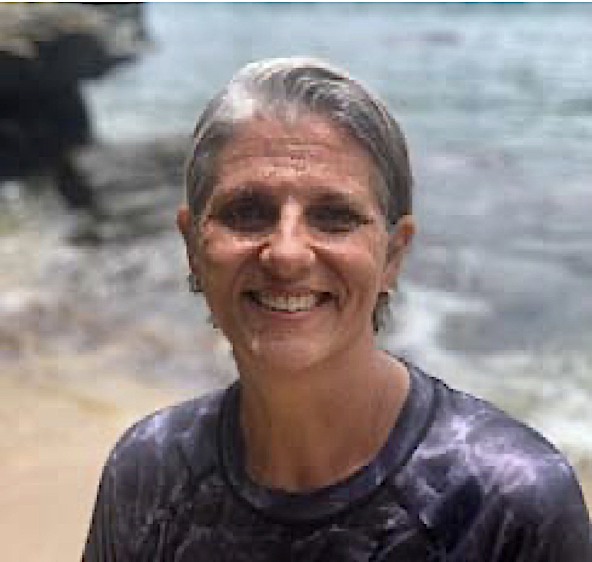CANARI Executive Director elected as representative of the public for the Escazú Agreement

Nicole Leotaud,
Port‐of‐Spain, November 14, 2022 – The Caribbean Natural Resources Institute (CANARI) congratulates Nicole Leotaud, its Executive Director, on being elected as one of the six new representatives of the public for the Escazú Agreement.
The Escazú Agreement is a regional agreement on Access to Information, Public Participation and Justice in Environmental Matters in Latin America and the Caribbean, which was adopted in Escazú, Costa Rica, on 4 March 2018.
This Agreement aims to guarantee the rights of access to environmental information, public participation in the environmental decision‐making process and access to justice in environmental matters, as well as the creation and strengthening of capacities and cooperation, contributing to the protection of the right of every person of present and future generations to live in a healthy environment and to sustainable development.
To date, 13 countries in Latin America and the Caribbean have ratified the Agreement, namely Antigua & Barbuda, Argentina, Bolivia, Chile, Ecuador, Guyana, Mexico, Nicaragua, Panama, St Vincent & the Grenadines, St Kitts & Nevis, Saint Lucia and Uruguay. Eleven others have signed and the hope is that they will adopt it in the coming years.
In her role as representative of the public, CANARI’s Executive Director Nicole Leotaud will promote and facilitate the participation of the public and channel its contributions, including presenting proposals on its behalf and hosting consultations through the Regional Public Mechanism.
Speaking about her motivation for this role, Nicole shared that, “My vision is that the rights and voices of all Caribbean people, including all non‐state actors and particularly those who are vulnerable and marginalised, are respected and considered in decision‐making to achieve eco‐social justice and equity.”
In laying out her priorities, she noted the need for much wider mobilisation and engagement of civil society and members of the public, especially vulnerable and marginalised groups, via raising public awareness about the Escazú Agreement and gathering inputs from the public to feed into discussions. She noted that advocacy for additional countries to join and strengthening mechanisms for national implementation of the Agreement are critical and will require broader mobilisation of stakeholders in countries across the region.
A conservation biologist by training, Nicole Leotaud has over 25 years’ experience in environmental governance and management across the Caribbean, including over 16 years at CANARI. She has worked on participatory governance and management of terrestrial and marine ecosystems, green and blue economies, civil society space and strengthening, rural livelihoods and local green‐blue enterprises, building resilience to climate change and natural disasters, and environmental and climate justice. This has given her deep and broad experience as a Caribbean civil society champion, designing, facilitating and advocating for participatory processes across the region, leading communication initiatives tailored to effectively reach different target audiences, mobilising coalitions and networks, supporting civil society organisations, and engaging in multi‐stakeholder policy processes.
She joins five other elected representatives of the public: César Artiga (El Salvador), Mijael Kaufman (Argentina), Joara Marchezini (Brazil), Irene Murillo (Costa Rica) and Bishnu Tulsie (Saint Lucia).
CANARI supports Nicole in this role, which aligns with priorities under the Institute’s Participatory Governance programme to support the full engagement of marginalised and less powerful stakeholders, through actions that seek out and assure the space for their participation, increase their capacity to participate knowledgeably, and reinforce and amplify their voices. The Escazú Agreement provides a key opportunity for the region to put the right to the healthy environment at the centre of our development.
About CANARI: The Caribbean Natural Resources Institute (CANARI) is a regional technical non‐profit institute which has been working across the Caribbean islands for more than 30 years. Our mission is to promote and facilitate stakeholder participation in the stewardship of natural resources in the Caribbean. Our work focuses on Biodiversity and Ecosystems, Equity and Justice, Participatory Governance and Resilience. For more information, see: https://www.canari.org.
About the Escazú Agreement: The Regional on Access to Information, Public Participation and Justice in Environmental Matters, also known as the Escazú Agreement, is the first environmental treaty of Latin America and the Caribbean and the first in the world to include provisions to guarantee a safe and enabling environment for environmental defenders. It entered into force on 22 April 2021. For more information, visit: https://www.cepal.org/en/escazuagreement.





